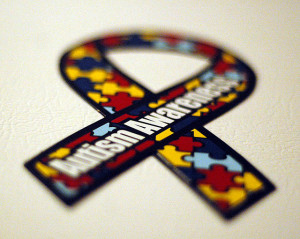Autism is one of those disorders that can have a range of effects on a person and their social lives. At its best, autism can simply result in some awkwardness during social interactions and maybe some minor ticks. There might also be a predilection towards math, facts, and orderly things that make sense. However those are mild cases and not always the norm. At its worst, autism can be truly crippling, both educationally as well as socially. Children with extreme forms of autism and aspergers can be socially ostracized, not to mention the difficulties with learning that the disorders can cause. Up until now, most school districts and officials have done a relatively poor job of helping those with autism under their care. Now, however, there are nonprofits springing up to help educate the educators about autism and how it can be dealt with best.
Autism Involves Me is a nonprofit located in Bentonville, Arkansas that wants to educate those in positions of educational and social authority about autism and how to deal with it properly. The group just released its first round of AIM to Educate grants that were created to assist school administrators in serving the needs of students with intellectual and developmental disorders, like autism. The first round of grants totaled $22,566 and was spread between 21 teachers and therapists. The money is to go towards further training as well as setting up classes and rooms for students who have disorders such as autism.
Autism Involve Me is a fully volunteer run group and includes parents of children with autism. The group has existed for several years and both the staff and board of directors are volunteers who make no money from their activities. It is a fully local charity too in that it makes and spends money locally, although it will accept donations from abroad. Along with focusing on educating about autism, the group also works to provide financial and social support for parents of children with autism as well as fully-grown autistic adults. As more and more people learn about autism, these sorts of groups will be on the front lines, fighting for the rights of the autistic to gain the support they need to learn and live as functioning adults.
If you’d like to read more, the link is here.


 A number of corporations have started to create volunteer initiatives for their employees, devoting a small number of employees’ paid work hours to philanthropy. These initiatives allow workers to take paid time off to work on a project within the community or devote time to a cause they feel passionate about. Companies have started to create these initiatives hoping to dispel the notion that a person who takes time off to volunteer is actually hurting his or her chances of promotion because of the time that will be spent out of the office.
A number of corporations have started to create volunteer initiatives for their employees, devoting a small number of employees’ paid work hours to philanthropy. These initiatives allow workers to take paid time off to work on a project within the community or devote time to a cause they feel passionate about. Companies have started to create these initiatives hoping to dispel the notion that a person who takes time off to volunteer is actually hurting his or her chances of promotion because of the time that will be spent out of the office.